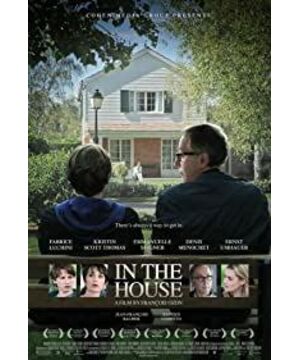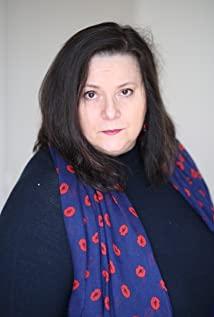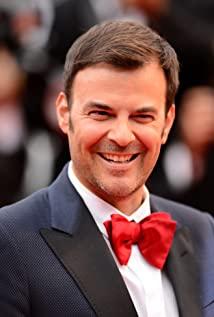In the film, Mr. Germain once said that a good ending is one that surprises readers, but is the most reasonable ending. I think this movie does it. The male protagonist lives with a disabled father, and his mother runs away. He is a "black sheep" who always likes to sit in the last row, so he is particularly interested in his friend Rafa's family, and has a special kind of relationship with Rafa's mother. Curiosity and fascination. For this fascination, he entered the Rafa family and began to observe and write like a novel. After being appreciated by Mr. Germain, he encouraged him to learn more and more about the Rafa family. At the same time, the situation at the teacher's home was also discovered little by little. This film is about two families. The teacher's wife is worried that her gallery will close, while the teacher is keen to teach the male protagonist to write and to spy on other people's families through his articles. With the deepening of prying, there was a conflict between the Rafa family and the teacher's family at the same time, and the teacher was "pulled down from the altar" by the male protagonist step by step. The status of the two changed quietly. From the beginning, the teacher pointed him on the blackboard How to write has become the male protagonist drawing on the blackboard how he wants to write and spy. The teacher's prying heart has also changed from a guide article to a member of the imaginary scene. Until the teacher lost his job and his wife left him because the gallery was closed; the forbidden love between the male protagonist and Rafa's mother ended when Rafa moved. Both of them lost everything, sitting lonely on the bench together, imagining with great interest what was going on in other people's homes.
In the context of literature, reality and imagination blur the boundary, making it difficult to distinguish what is reality and what is imagination. Therefore, the teacher believed the article to be true, and his wife began to have a bad relationship with his wife because of the article, and even entered the scene in the article to talk to the male protagonist, as if he was teaching his article, or his own prying heart was so heavy that he substituted himself into the story (this Isn't that what we often do when we read). The audience is also confused, thinking, and believing in this intersection of reality and fantasy. The teacher has no children, and he pays too much attention to the students so that he can't distinguish between teachers and students or father and son, so he did something unbiased, which led to his final result. The restless youth yearns not only for the father's love and mother's love from the family, but also for the contact from the opposite sex. On the one hand, he makes him break into other people's families to spy on him, which produces that forbidden kiss. On the other hand, he has a childlike willfulness towards the teacher and threatens it achieves its purpose.
This intersection of reality and fantasy is the biggest highlight of the movie, and you can savor the beauty of connotation carefully. In contrast, whether it is a blockbuster that pursues excitement, or the suspense that burns the brains of the plot, it is inferior. Literary fans can pretend to be coercive occasionally, and more let me calm down the impetuousness now, recognize my impatience, watch a movie that is not interesting, have time to think more about the connotation, and write a comment seriously , get a good night's sleep tonight.
View more about In the House reviews










